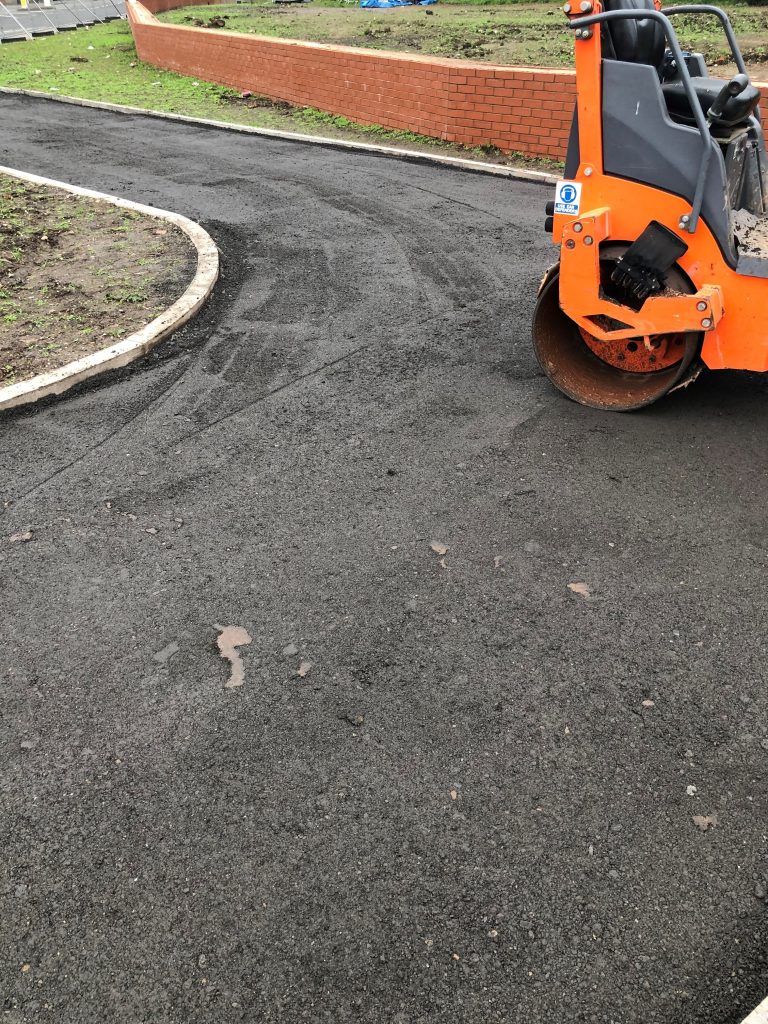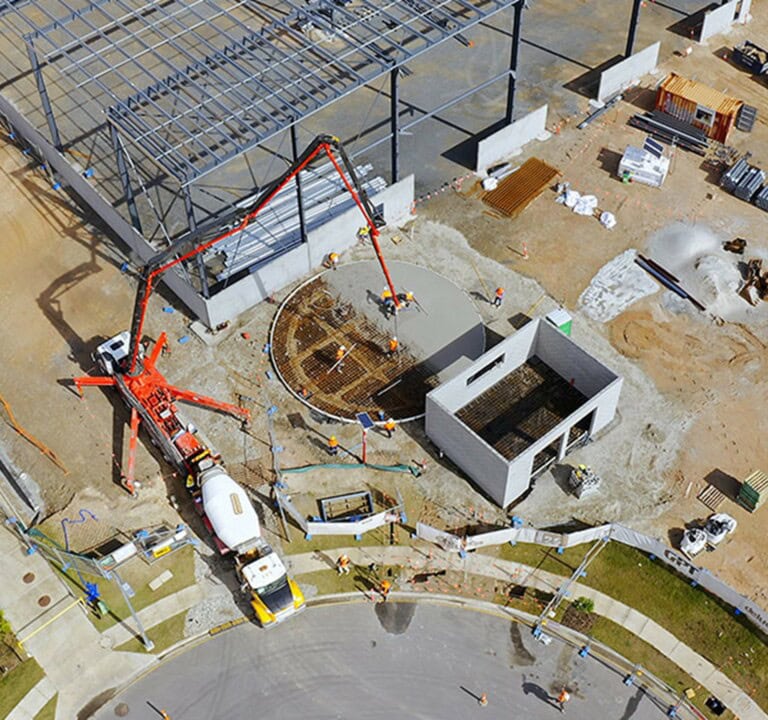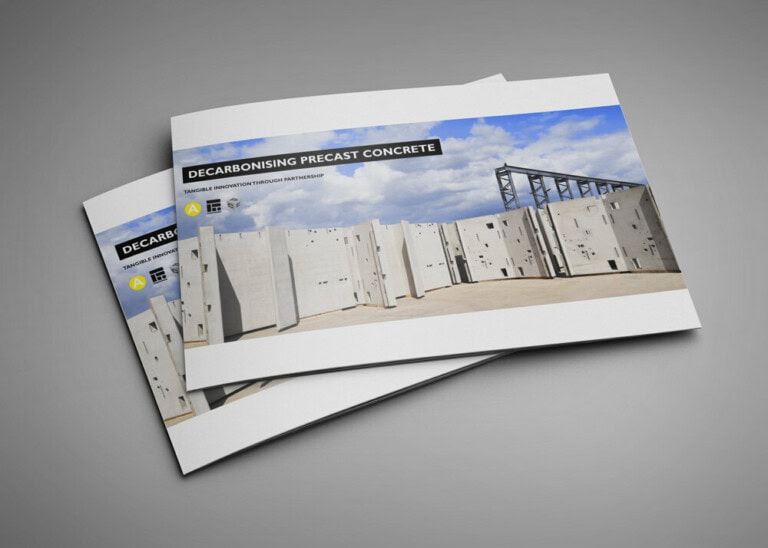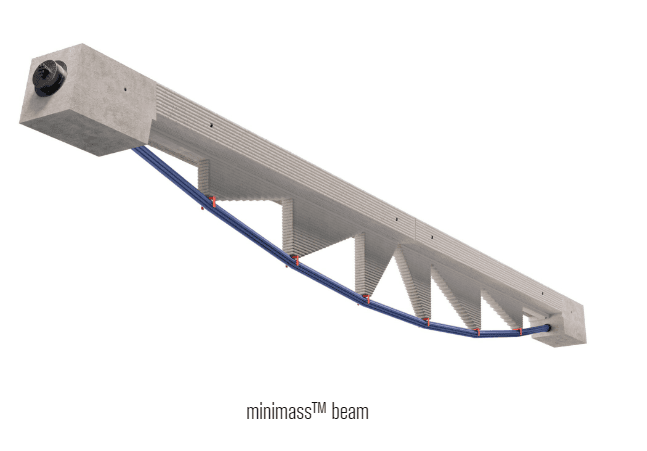Typically, depending on design criteria, the upper layers of a pavement design are made up of 3 layers of Asphalt; Base, Binder and Surface Course. Although these products can be produced using an element of recycled materials, they are normally made using virgin aggregates. Such aggregates must be heated to temperatures between 140 and 190 degrees, and materials must be laid and compacted within a narrow time frame, circa 2 hours.
Foamed Asphalt incorporating Manufactured Limestone (M-LS) by O.C.O Technology can replace the base and binder layers in traditional pavement and, depending on the design criteria, could use between 20% and 50% of M-LS Carbon negative aggregate in the mix. This coupled with other recycled aggregates, for example asphalt plannings, can provide a product using around 90% recycled products. An additional benefit for the base replacement is that the material is laid cold and can be stored for several weeks and the binder replacement can be laid within 8 hours of production. In certain applications, this product can also be produced on site using a mobile production plant, reducing vehicle movements.
O.C.O Technology has developed a process – Accelerated Carbonation Technology (ACT) – that utilises carbon dioxide gas as a resource to treat and valorise a wide range of wastes. ACT is a genuine carbon capture and utilisation (CCU) process with significant volumes of carbon dioxide being permanently captured. Many residual materials react naturally with carbon dioxide. If the conditions are carefully controlled, this natural reaction can be accelerated to take place in minutes rather years. This results in the formation of calcium carbonate (limestone) and other very stable complex compounds.
The ACT process has been applied in the UK to the treatment and recycling of ‘fly ash’ residues from modern Energy from Waste (EfW) facilities. Known as air pollution control residues (APCr) the material is a hazardous waste and historically has been treated and landfilled. The ACT process allows the recycling of APCr into an aggregate product that is used in the manufacture of building blocks. The quantity of APCr in the UK is increasing due to the growth in EfW facilities, so the deployment of the ACT is opportune as it reduces the requirement for landfill and provides a recycling solution.
ACT not only recycles the residual material; it also captures CO2 during the manufacturing process. The aggregate has a carbon footprint in the region of -40 to -50 kg CO2 eq per tonne of aggregate produced. In the financial year ending September 2020, O.C.O treated 132,000 tonnes of APCr to create 316,000 tonnes of aggregate, permanently capturing approximately 15,000 tonnes of CO2.
No direct cost information has been provided at this time, but O.C.O Technology state that costs for this solution may be reduced compared to conventional asphalt design.





